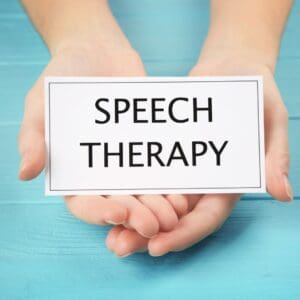
Articulation therapy is a specialized form of speech therapy that focuses on improving a person’s ability to produce clear and intelligible speech sounds. This therapy is often used to treat speech disorders such as apraxia, dysarthria, and phonological disorders that affect a person’s ability to articulate certain sounds.
Articulation therapy typically begins with an assessment of the patient’s speech abilities to identify areas of difficulty. The speech therapist will then develop a customized treatment plan based on the individual needs of the patient. The therapy may involve a combination of exercises and techniques aimed at improving the patient’s ability to produce speech sounds accurately and fluently.
One of the primary goals of articulation therapy is to improve a person’s ability to articulate sounds correctly. This may involve exercises that target specific sounds that the patient has difficulty producing. For example, if a person has trouble producing the “r” sound, the therapist may use techniques such as visual aids, mouth positioning, and repeated practice to help the patient produce the sound correctly.
Another important aspect of articulation therapy is helping the patient to generalize their newly acquired skills. This means helping the patient to use the correct sounds in a variety of contexts, such as in conversation or during storytelling. This may involve role-playing or other activities that allow the patient to practice their speech skills in a natural setting.
Articulation therapy may also involve techniques such as modeling, where the therapist produces the sound correctly for the patient to imitate. The therapist may also use games and other fun activities to keep the patient engaged and motivated.
In addition to improving speech sounds, articulation therapy can also help to improve a person’s overall communication skills. By improving their ability to produce clear speech, the patient may become more confident in their ability to communicate with others. This can lead to improved social interactions and overall quality of life.
In conclusion, articulation therapy is a highly effective treatment for individuals with speech disorders. It is a customized approach that focuses on improving a person’s ability to articulate speech sounds correctly and fluently. Through a combination of exercises, techniques, and fun activities, articulation therapy can help to improve communication skills and overall quality of life for individuals with speech disorders. If you or someone you know is struggling with speech difficulties, consider reaching for an evaluation to learn more about how articulation therapy can help.

Comments are closed